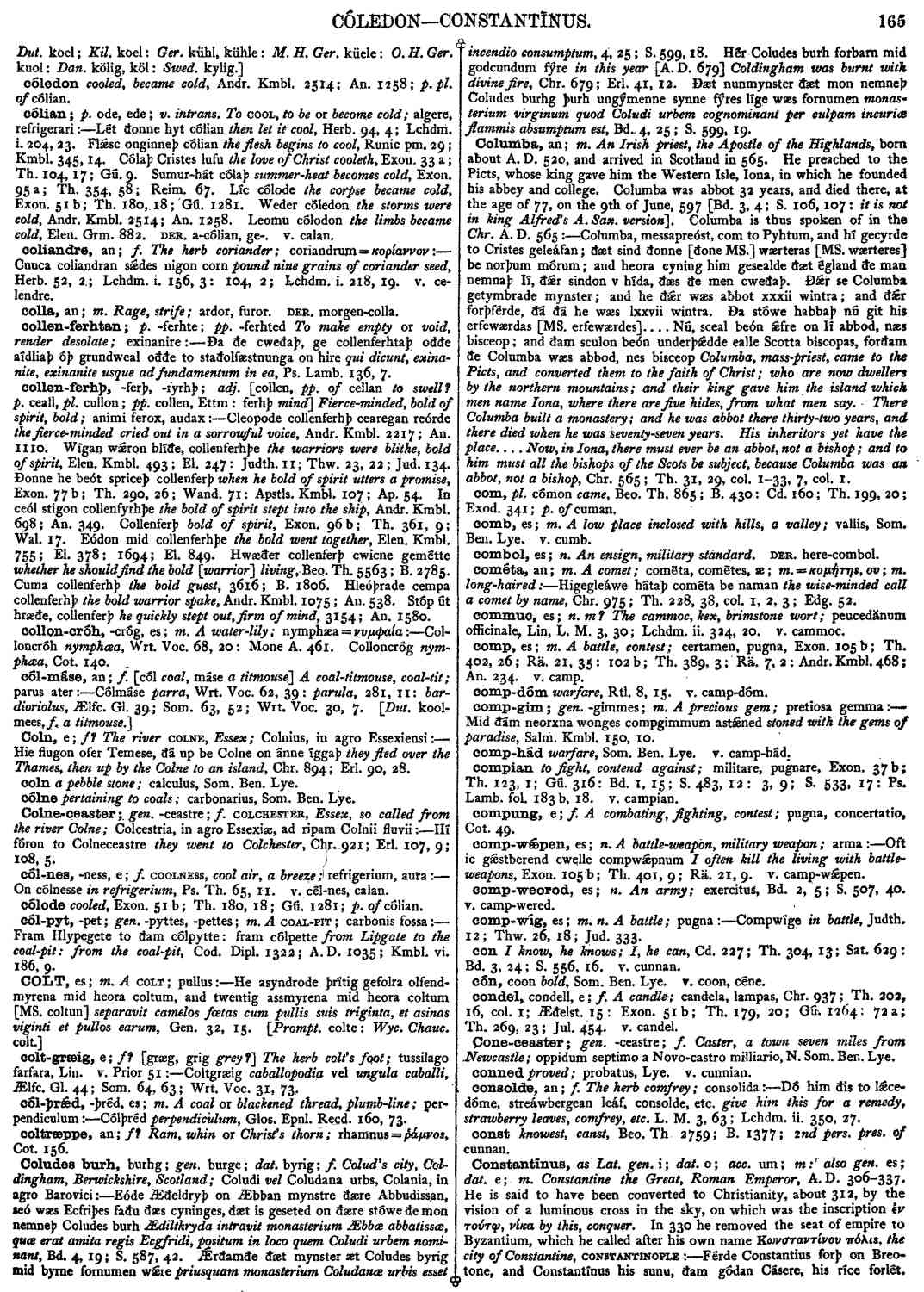Columba
- noun [ masculine ]
-
Columba, messapreóst, com to Pyhtum, and hí gecyrde to Cristes geleáfan; ðæt sind ðonne ðone MS. wærteras MS. wærteres be norþum mórum; and heora cyning him gesealde ðæt égland ðe man nemnaþ Ií, ðǽr sindon v hída, ðæs ðe men cweðaþ. Ðiér se Columba getymbrade mynster; and he ðǽr wæs abbot xxxii wintra; and ðǽr forþférde, ðá ðá he wæs lxxvii wintra. Ða stówe habbaþ nó git his erfewærdas MS. erfewærdes. . . . Nú, sceal beón ǽfre on Ií abbod, næs bisceop; and ðam sculon beón underþǽdde ealle Scotta biscopas, forðam ðe Columba wæs abbod, nes bisceop
Columba, mass-priest, came to the Picts, and converted them to the faith of Christ; who are now dwellers by the northern mountains; and their king gave him the island which men name Iona, where there are five hides, from what men say. There Columba built a monastery; and he was abbot there thirty-two years, and there died when he was seventy-seven years. His inheritors yet have the place. . . . Now, in Iona, there must ever be an abbot, not a bishop; and to him must all the bishops of the Scots be subject, because Columba was an abbot, not a bishop
- Chr. 565 ;
- Th. 31, 29, col. 1-33, 7, col. 1.
Bosworth, Joseph. “Columba.” In An Anglo-Saxon Dictionary Online, edited by Thomas Northcote Toller, Christ Sean, and Ondřej Tichy. Prague: Faculty of Arts, Charles University, 2014. https://bosworthtoller.com/6534.
Checked: 1